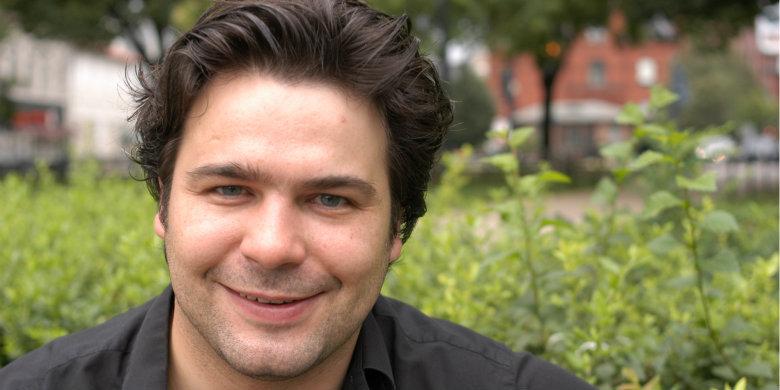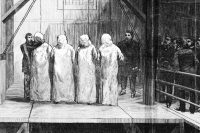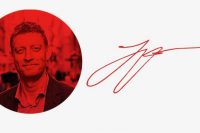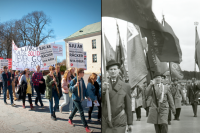
En av de farligaste meningarna en politiker kan yttra är: ”Det finns inga alternativ”. Men alternativ är just vad de tyska väljarna börjar se sig om efter.
BERLIN – Of the most dangerous sentences a politician can utter, one must be, “There is no alternative.” Or, as German Chancellor Angela Merkel says, the situation is alternativlos.
A group of German political activists who gathered this weekend to launch an anti-euro party is betting that Merkel’s refusal to countenance change will provide fertile ground for opposition. Although most people in Berlin think Merkel will be re-elected in the general election in September, a growing number of political forces are lining up to define an alternative to her policies in Europe.
Merkel has managed to contain the threat to austerity represented by international leaders such as François Hollande, Mario Monti and Mariano Rajoy. At home, in spite of growing hostility to the euro among the public, none of the mainstream parties dissent from Merkel’s dedication to the euro. Merkel’s more dangerous opponents come from outside the established political terrain.
Populist revolts have been capturing headlines in Europe for a while. The surprising electoral success and the unyielding stance of Beppe Grillo in Italy could force more political choices across the continent if he calls for Italy to leave the euro.
This revolutionary challenge is mirrored in Germany by a more unfamiliar movement: a revolt of the technocrats. This weekend 1,500 economists, lawyers and other members of the establishment gathered in Berlin’s Intercontinental Hotel to launch a head-on assault on the chancellor’s European policy. Calling itself Partei Alternative für Deutschland (Alternative for Germany), the nascent political party argues that the euro is dividing the European Union and claims that the re-introduction of the deutsche mark should not be a “taboo.” Its goal is an end to bailouts and an orderly dissolution of the euro.
Two-thirds of the supporters on the Alternative Party’s website have PhDs, and its leading figures make unlikely revolutionary leaders. The leader, Bernd Lucke, is a clean-shaven, wonkish economist in his 50s at a middle-ranking provincial university. With his strange sort of anti-charisma, he is no Che Guevara figure.
The group is a good illustration of Germany’s exceptionalism. Where in other countries the technocratic elite have been pro-euro, in Germany technocrats have blazed the trail of euro-skepticism. The biggest opponents of the common euro are among the ranks of economists (with an ideology that favors austerity), central bankers (many at the Bundesbank have been against banking union and the socialization of European debt), lawyers and judges (judges in the constitutional court have defended German parliamentary sovereignty). They have all been increasingly frustrated by the way the political class has remained united behind Merkel’s policies on Europe. Der Spiegel journalist Ralf Neukirch jokes that, “It is as though the professors of 1968, rather than the students, have now decided to revolt.”
Germany’s established parties, including Merkel’s leading Christian Democratic Union, have attempted to denounce the Alternative Party, pointing out, for example, that some of the slogans attacking “multicultural re-education” on the party’s website echo those of neo-Nazi groups. In a country that is suspicious of the wisdom of crowds, these sorts of attacks are usually enough to consign a political party to oblivion. As a result, party leaders are going to great lengths to distance themselves from the far right.
In gathering signatures for election, the party has managed to attract 7,000 members, but its leaders are weeding out former members of far-right groups. Party leader Bernd Lucke told Der Spiegel that he wants to make sure they are not attracting support from the “wrong side.”
There was excitement in early April when an opinion poll showed that up to 24 percent of German voters claimed they would consider voting for a euro-skeptic party. It is clear that a substantial proportion of the electorate feel under-represented by the leadership’s consensus on Europe. Several euro-skeptic books have sold millions of copies. Furthermore, with the rise and fall of the Internet-backed “Pirate Party” in recent months, German politics have become volatile.
This week the Bild Zeitung has the first official poll since the new party was launched, showing support at 3 percent. Few political pundits expect the “Alternative Party” to get the 5 percent of votes required to enter parliament. But this may not stop the party from having an impact. The political scientist Oskar Niedermayer told Der Spiegel that the party could determine the outcome of the election even if it secures only 2 percent of the vote. That could be enough to deny the governing coalition the chance to stay in power, particularly if it prevents the FDP (Free Democrat Party) from reaching the 5 percent it needs to remain in parliament.
Meanwhile, mainstream parties are changing their rhetoric to appeal to the substantial reservoir of skeptic voters. Last week, Germany’s foreign minister, Guido Westerwelle, told the Frankfurter Allgemeine Zeitung that a “red-green” coalition would be soft on deficit targets. Merkel will be under pressure to match his rhetoric and be tough in future negotiations – for example, if Slovenia needs a bailout.
All this shows that the politics of the euro crisis remain unpredictable. When the market pressure lessened last summer, many thought the worst was over. Despite polls showing that populist parties in the Netherlands and Greece would win majorities, voters in both countries ended up supporting pro-euro mainstream parties. The implication was that voters are happy to flirt with rebellion, but when they examine their consciences in the privacy of the voting booth they may accept that there is no viable alternative.
Then Grillo emerged as the surprise winner of the Italian election. And today in Greece and the Netherlands, the opponents of the mainstream outpoll the elected governments. These populist movements may put more pressure on Merkel than the Alternative Party will. If one of them wins an election, they may yet show that there is an alternative.
Mark Leonard is a British journalist and author.
Fotnot: Texten är tidigare publicerad på Mark Leonards blogg på Reuters.com och publiceras med tillstånd av författaren (the text has previously been published on Mark Leonard’s blog at Reuters.com and is re-published by kind permission by the author. Reuters retain the copyright.).
Följ Dagens Arena på Facebook och Twitter, och prenumerera på vårt nyhetsbrev för att ta del av granskande journalistik, nyheter, opinion och fördjupning.

































